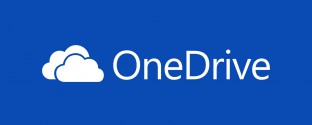 In the world of tech policy, things just got really interesting. Every three years, the U.S. Copyright Office (part of the Library of Congress) reviews the Digital Millennium Copyright Act (DMCA) and renders its verdict on potential copyright violations involving many forms of digital media. Of the cases involving digital media discussed, many are ignored, some may lead to new laws prohibiting specific activities, and even fewer result in exempting certain practices. In a rare occurrence of events this year, the Copyright Office has revealed six new exemptions to the DMCA, all of which have sparked an interesting amount of dialogue.
In the world of tech policy, things just got really interesting. Every three years, the U.S. Copyright Office (part of the Library of Congress) reviews the Digital Millennium Copyright Act (DMCA) and renders its verdict on potential copyright violations involving many forms of digital media. Of the cases involving digital media discussed, many are ignored, some may lead to new laws prohibiting specific activities, and even fewer result in exempting certain practices. In a rare occurrence of events this year, the Copyright Office has revealed six new exemptions to the DMCA, all of which have sparked an interesting amount of dialogue.
The first exemption from the DMCA is one that most people can probably relate to. Under the exemption, it is now legal to bypass content scrambling systems on DVD movies and incorporate portions of films into Youtube clips, documentaries, etc. In the official definition, media that utilize film content must be for educational purposes, documentary filmmaking, or noncommercial videos. Incorporating short portions of films into personal works must be done so for the purpose of critiquing or commenting on said films.
Allowing such an exemption has many positive consequences, especially in the realm of academia, where criticism and commentary on various media serves only to educate and open up insightful conversation. On the consumer side, the impact will be apparent on services like Youtube where copyright issues have led to the removal of many videos. As a result, Google will be less obligated to go through Youtube and remove videos that appear to violate previous copyright law. The new law will also affect a large amount of other online media services also troubled by copyright issues. Those who will certainly feel the full impact of the exemption are of course the content creators themselves.
Garnering the most attention, the second exemption from the Copyright Office makes it ok to jailbreak your iPhone. In its entirety, the new law covers any computer programs that enable wireless telephone handsets to execute software applications. That means it’s ok to install any legally acquired software on your phone that is not native to the device. Part of the reasoning behind this is that you’ve already paid for your phone, meaning you should be given the freedom to make modifications and improve the user experience. The notion of user freedom pertains particularly to the closed business model that the iPhone’s app store uses. Since jail-breaking an iPhone is financially risky from the consumer’s standpoint due to device problems that might follow, the case that consumers should have a choice as to what application software they run on their device becomes stronger.
 It should be noted, however, that the ruling does not necessarily make jail-breaking legal, but instead means that jail-breaking a phone is not a violation of copyright law. Based on that conclusion, voiding the warranties of jail-broken iPhones is well within Apple’s rights because copyright law is not the only way the company can keep its users in check. While many Apple products like the iPhone offer a relatively seamless user experience, they are also isolated from many 3rd party applications and services.In this specific case, Apple’s legal power over jail-breaking has been greatly diminished because as stated by the Copyright Office, “while a copyright owner might try to restrict the programs that can be run on a particular operating system, copyright law is not the vehicle for imposition of such restrictions.” Alternatively, Apple has the right to deny the legitimacy of 3rd party software or firmware on their platform through means like voiding warranties or disallowing certain apps. However, even that right is actively subject to investigation by the Federal Trade Commission (FTC) due to signs that Apple could be violating anti-trust policy through monopolistic business practices.
It should be noted, however, that the ruling does not necessarily make jail-breaking legal, but instead means that jail-breaking a phone is not a violation of copyright law. Based on that conclusion, voiding the warranties of jail-broken iPhones is well within Apple’s rights because copyright law is not the only way the company can keep its users in check. While many Apple products like the iPhone offer a relatively seamless user experience, they are also isolated from many 3rd party applications and services.In this specific case, Apple’s legal power over jail-breaking has been greatly diminished because as stated by the Copyright Office, “while a copyright owner might try to restrict the programs that can be run on a particular operating system, copyright law is not the vehicle for imposition of such restrictions.” Alternatively, Apple has the right to deny the legitimacy of 3rd party software or firmware on their platform through means like voiding warranties or disallowing certain apps. However, even that right is actively subject to investigation by the Federal Trade Commission (FTC) due to signs that Apple could be violating anti-trust policy through monopolistic business practices.
The third exemption makes it legal for individuals to unlock a phone using non-proprietary software and use it on another network. Often times cell phone users may want to use the same phone but with a different provider. Since providers like AT&T operate on GSM, customers can travel internationally with their phones and change sim-cards. However, this can only be done by unlocking the phone from AT&T’s network with their permission and at a cost. Certain other providers that operate on CDMA lock their phones as well but don’t give customers the option to unlock them, effectively tying the user to their network. As a result, using non-proprietary software to unlock a phone from a network is a common practice, even though it previously violated the DMCA. The new ruling from the Copyright Office now legitimizes this practice, giving customers the freedom to choose their phone’s network.
Of the other three exemptions, the first allows users to crack video game digital rights management controls to probe security flaws, the second allows users to bypass broken or irreplaceable dongles used to access certain computer programs, and the last lets users circumvent locks on eBook readers if they don’t support screen reader use. While these exemptions are significant in their own right, they do not bear the same importance as the ones discussed earlier.
Part of the reason they aren’t as important is because of the limited number of people they will affect. In contrast, copyright issues involving motion pictures affect a diverse group of interests and services. Similarly, letting users jail-break and unlock their phones legitimizes both practices for the mobile phone market. While copyright law may have not have stopped many individuals from jail-breaking or unlocking anyway, those who previously didn’t due to the illegality of both may reconsider the idea. That though doesn’t necessarily mean that a vast number of people will start modifying their phones. For the most part, the average consumer won’t notice a difference and Apple will continue with its usual policies.
The new exemptions from the DMCA undoubtedly take a step towards giving the average consumer more freedom. The case was made that none of the activities in any way violate copyright law. Some of the exemptions will have tangible effects while others are symbolic and make things more official. More than anything, they set a precedent for future decisions involving copyright issues. Hopefully in the future we’ll see more decisions like this that level the playing field between consumers and copyright owners.
Related: The Future of the Internet: Net Neutrality
Links: New DMCA Rulings
Note: Image Courtesy MikeBlogs






